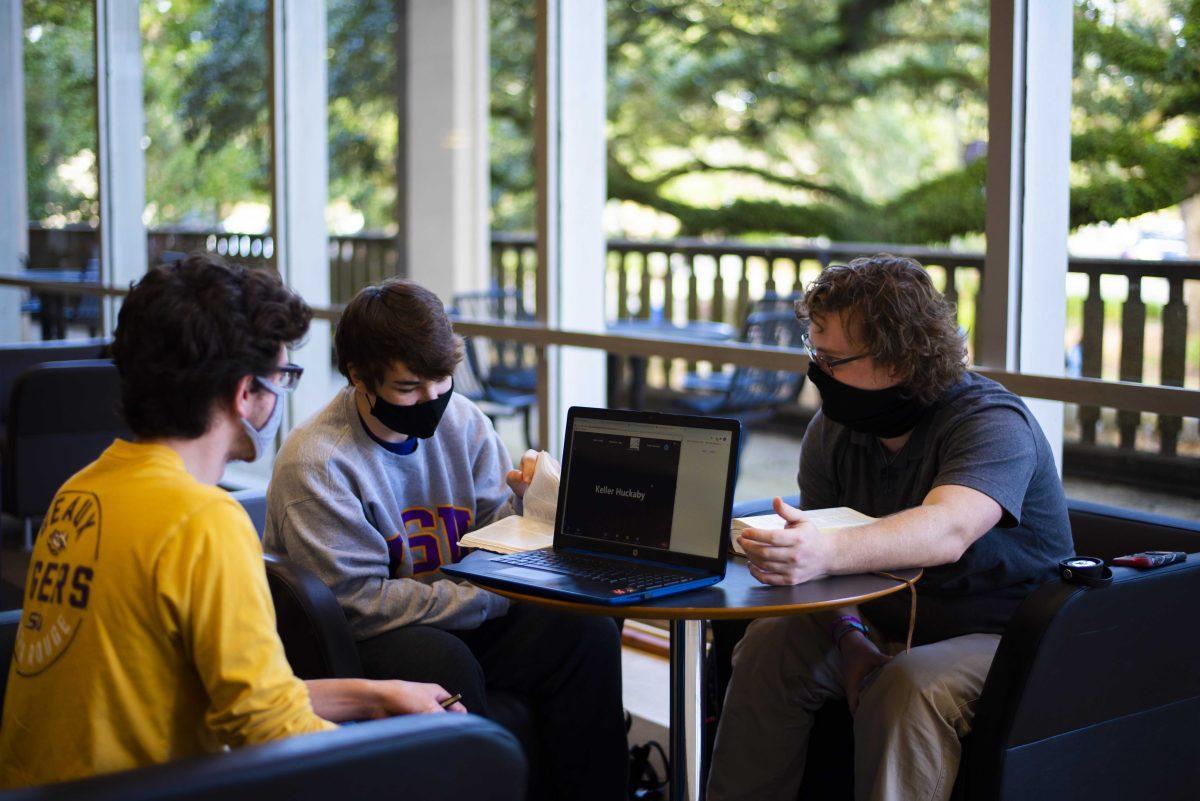Some LSU students, citing Zoom fatigue, burnout and an increasingly strong desire to return to normalcy, have criticized LSU’s decision to cancel breaks this semester.
University administration canceled spring and Mardi Gras breaks under advice of its team of medical experts, according to Executive Vice President & Provost Stacia Haynie. To reduce the likelihood that students will travel and spread COVID-19, traditional holidays were replaced with one-day breaks, including the following:
Monday, Jan. 18 – Martin Luther King Jr. Day
Tuesday, Feb. 16 – Mardi Gras
Friday, March 12 – Mid-Semester Break
Thursday, March 25 – March Break
Friday, April 2 – Good Friday
Extra one-day breaks were added in March to make up for the removal of traditional breaks, and the semester will be shorter, with final exams and commencement occurring one week earlier than usual.
Many LSU students voiced concern about burnout, stress and fatigue regarding the spring semester.
“I am looking forward to a shorter semester,” English sophomore Evan Leonhard said. “However, I look forward to holidays to help myself reposition and restart for the next week. I feel like I am losing something.”
Some students also said that LSU’s decision to cancel breaks but have an open football stadium was hypocritical and made it seem like the University only cares about money, not students’ wellbeing.
“They are overlooking measures because plenty of people are still coming from out of state to watch a football game,” sports administration junior Will Freese said. “There is still a chance, and people who are from the Louisiana area go home most weekends, so this is just prohibiting out-of-state students from traveling to see their families.”
LSU Media Relations Director Ernie Ballard said the University’s administration wanted to avoid long holiday breaks during which people may travel, spend time with people outside of their immediate household and potentially bring the virus back to campus.
He also said the comparison between an open football stadium and the cancellation of breaks isn’t an accurate one.
“Football was limited to 25% capacity, taking place outdoors [and] under rules established by the NCAA and SEC on a limited number of dates,” Ballard said. “Safety is always our guidepost with all decisions, but we do listen to student feedback, which is why we were able to also have an in-person commencement ceremony in December.
“All these decisions aren’t taken lightly, and consult with our faculty and state experts are taken into consideration before we make any of these types of major changes.”
Asha Murphy, a licensed professional counselor at the Student Health Center, said she has mixed feelings about the traditional breaks built into the academic calendar when it comes to the topic of burnout and stress.
“I think of them as island paradises spaced out in a large sea; it’s human nature to use all of our reserves swimming hard without daily self-care or building in our own breaks until we can just manage to get to the next island and then completely relax and ‘vege’ out,” Murphy said. “Then at some point, it’s time to get back in the water. It’s a little disorienting, if you think about it, and it can help keep us in a pattern of ‘all or nothing’ thinking and functioning.”
Murphy said this semester’s mini-breaks, as disappointing as they might feel, could serve as an opportunity to be more intentional about the way students build in breaks naturally to their everyday lives.
She said time management and the ability to find balance between school, work and self-care is crucial for students.
“Balance is so difficult to strike when each part of your life feels heavy and prioritized. Often we put self-care, relaxation and down time on the back-burner,” Murphy said. “But the research shows lack of prioritizing taking care of ourselves can be detrimental to mental health and lead to burnout.”
Murphy explained that there are three components to burnout:
Emotional exhaustion — the fatigue that comes from caring too much, for too long
Depersonalization — the depletion of empathy, caring, and compassion, and
Decreased sense of accomplishment — an unconquerable sense of futility: feeling that nothing you do makes any difference.
A lack of emotional intelligence — the capacity to be aware of, understand and control one’s emotions — and a lack of self-compassion is an area students can work on to prevent burnout, according to Murphy.
“I’ve noticed many students fear that if they are gentle with themselves, they’ll ‘let themselves go’ and turn into human sloths destroying potential for success — that can be a scary thought,” Murphy said. “Turns out, the research tells us that individuals with more self-compassion actually tend to be more productive.”
Murphy said incorporating regular, even scheduled self-care into one’s routine, getting enough quality sleep each night, staying hydrated, consuming nutritious foods and exercising can help prevent burnout.
LSU students express frustration with University’s decision to cancel breaks for spring semester
January 31, 2021
LSU students sit on campus on Monday, Jan. 25, 2021 doing their online classes in Student Union on LSU’s campus.





